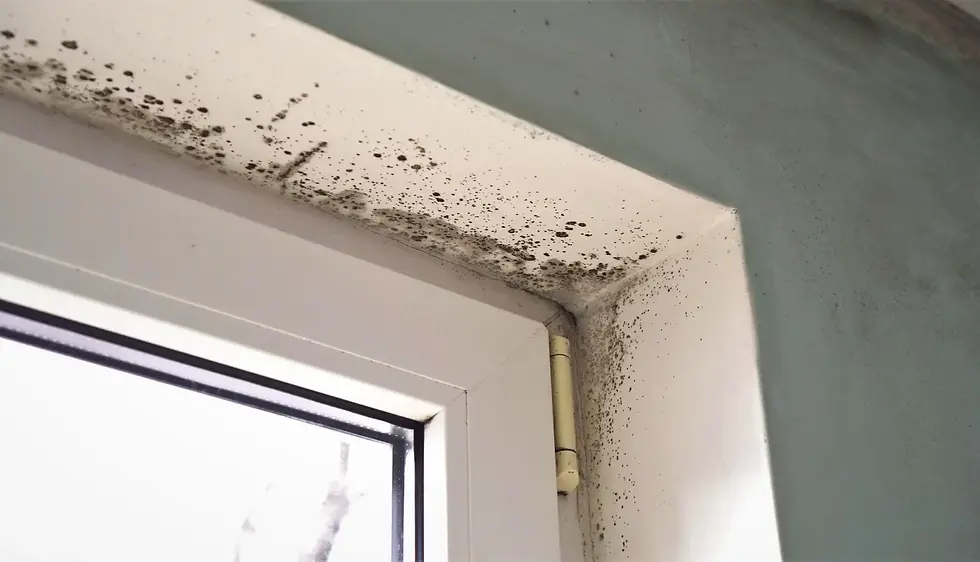How to Look for Foundation Issues When Buying a Home
- A Better Choice Inc.

- Oct 11, 2024
- 4 min read
Buying a home is one of the most significant investments you will make in your lifetime. It’s an exciting time filled with dreams and possibilities, but it’s also a process that requires careful consideration, especially when it comes to the condition of the property. One of the critical aspects to inspect is the foundation. A strong foundation is essential for the safety, stability, and longevity of your home. Here’s a guide on how to spot potential foundation issues when buying a home and why they matter.

Why Foundation Integrity is Important
The foundation of a home supports everything above it, including the walls, roof, and interior. If the foundation is compromised, it can lead to a series of problems, including:
Structural Damage: A failing foundation can cause cracks in walls, uneven floors, and even roof problems.
Water Damage: A compromised foundation may allow water to seep into the basement or crawl space, leading to mold, mildew, and rot.
Decreased Property Value: Homes with foundation issues are often harder to sell and can significantly reduce property value.
Understanding the importance of a solid foundation is crucial as you navigate the home-buying process.
Signs of Foundation Issues
Here are some key indicators of potential foundation problems to watch out for when inspecting a home:
1. Visible Cracks
Check for cracks in the foundation itself, as well as in walls, ceilings, and floors. While small hairline cracks can be normal, larger cracks (over 1/4 inch wide) may indicate more serious issues. Pay particular attention to:
Vertical Cracks: These can occur due to natural settling but should be monitored.
Horizontal Cracks: Often more concerning, these can indicate pressure from soil or water.
Stair-Step Cracks: These usually occur in brick or block walls and can signify foundation movement.

2. Uneven Floors
Walk through the home and pay attention to how the floors feel. Are there areas that slope or sag? Uneven floors can indicate a shifting foundation, which could lead to further issues down the line.

3. Doors and Windows
Observe how well doors and windows open and close. Sticking or misaligned doors and windows can be a sign of foundation movement. If you find doors that won’t latch or windows that are difficult to open, it’s worth investigating further.

4. Gaps Between Walls and Ceilings
Look for gaps or spaces where the walls meet the ceiling or floor. These gaps can indicate shifting or settling in the foundation. Pay attention to areas where the drywall may be pulling away from the corners.

5. Water Accumulation
Check the property’s drainage system. Is there any standing water near the foundation? Poor drainage can lead to foundation issues over time, as water can erode soil and lead to settling.

6. Exterior Signs
Examine the exterior of the home for signs of foundation issues, such as:
Cracks in the foundation: Look for any visible cracks in the concrete or masonry.
Tilted chimney: A chimney that is leaning away from the house can indicate foundation settlement.
Separation from the home: Look for gaps where the house structure meets the foundation.

Conducting a Professional Inspection
While you can identify some signs of foundation issues during your initial walkthrough, hiring a professional home inspector or structural engineer is crucial for a thorough evaluation. They can provide a comprehensive assessment of the property and identify any underlying issues that may not be immediately visible.
When hiring an inspector, ensure they have experience with foundation issues and ask for a detailed report on their findings. If they identify any concerns, it may be worth consulting a foundation repair specialist for further evaluation.
What to Do If Issues Are Found
If your inspection uncovers foundation problems, don’t panic. Here’s how to proceed:
Get a Detailed Assessment: Hire a foundation repair specialist to assess the severity of the issue. They can provide a clear picture of what needs to be done.
Consider Repair Costs: Ask for a detailed estimate of the repair costs. Understanding the financial implications will help you make an informed decision.
Negotiate with the Seller: If the foundation issues are significant, consider negotiating with the seller to cover repair costs or lower the sale price.
Evaluate Your Options: Depending on the extent of the issues, you may decide to proceed with the purchase, negotiate repairs, or walk away if the problems are too severe.
Conclusion
When buying a home, it’s essential to be proactive in identifying potential foundation issues. By knowing what to look for and enlisting the help of professionals, you can avoid costly repairs and ensure your investment is sound. Remember, a strong foundation is not just about the structure of the house; it’s about the peace of mind that comes with knowing your home is safe and secure.

If you have any concerns about foundation issues or need assistance with repairs, contact A Better Choice, Inc. today for expert advice and solutions. Your home is one of your most significant investments, and we’re here to help you protect it.




Comments